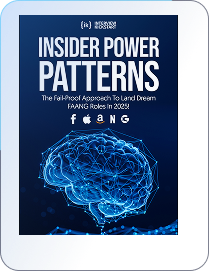Amazon QA engineer interview questions are designed to assess a candidate’s technical expertise, problem-solving abilities, and attention to detail. Whether you’re an experienced QA engineer or preparing for your first interview at Amazon, understanding the types of questions you may encounter is crucial.
Amazon operates across several industries providing customer-focused products and services. Quality is an essential facet of Amazon’s consumer-centric vision.
Quality Assurance (QA) engineers at Amazon work closely with software developers to evaluate the functionality of products and services through manual or automated tests. QA engineers run a series of test suites and cases to identify product defects and drive quality initiatives.
In this article, we’ll look at the Amazon quality assurance engineer interview process, including the type of questions asked at the interview. We also offer tips and insights to help you prepare for and ace your upcoming QA interview.

Amazon’s QA engineer interview process is similar to Amazon’s coding interview process. Amazon’s QA interview process comprises the following 5 stages:
Your knowledge of basic data structures (Arrays, Strings, Linked Lists, etc.) is assessed at this stage. To ace this coding interview, you have to be adept at an object-oriented programming language such as Java, Python, or C++.
At this stage of the Amazon QA engineer hiring process, you will be evaluated on your ability to plan and execute test strategies in a real-time situation. Experience in software testing is necessary to be successful in this round.
Your ability to debug code, among other analytical skills, will be assessed in this round. Although similar to the coding interview, questions asked in this round will be more challenging and will involve algorithmic problems.
Amazon follows a unique method to evaluate candidates’ behavioral skills. Amazon’s behavioral interview is based on Amazon’s 16 leadership principles.
In this round, you’ll be asked questions on workplace conduct and discipline, collaboration, leadership, initiative, and inclusion.
The Bar Raiser round is the final stage of the interview process. It is conducted by a member of Amazon’s Bar Raiser team, i.e., a group of employees specially trained to hire only the best talent.
At the Bar Raiser interview, you’ll be asked questions pertaining to:
Questions asked at Amazon’s QA interview are a mix of coding, testing, analytical, and behavioral questions. Given below are sample Amazon QA engineer interview questions.
Testing for bugs, errors, and inconsistencies is the primary role of an Amazon QA engineer. Below are some commonly asked Amazon QA engineer interview questions on testing:
Knowing how to code and approach problem-solving analytically is an essential requirement for QA engineers.
Below are some Amazon QA engineer interview questions on coding asked at the Amazon QA interview. These questions are generally based on coding topics such as arrays, strings, linked lists, graphs, trees, hashing, and other coding concepts on algorithms and data structures.
Amazon”s behavioral interviews are a key part of the interview process at Amazon for all roles, whether junior, mid, or senior-level roles. Below are some sample behavioral questions asked at Amazon’s QA engineer interview:
Given below are some tips to help you ace your next QA engineer interview.
A strong project portfolio can give you a competitive edge. Create your portfolio using the STAR format, which highlights situations, tasks, actions, and results for each project. This will give interviewers the right context and clarity about projects as you talk about them.
Behavioral interviews are a very important part of the Amazon interview process. Amazon’s behavioral interviews differ from behavioral interviews at other FAANG companies. The Bar Raiser round at Amazon focuses primarily on Amazon’s 16 lleadership principles.
Make sure you prepare answers to behavioral questions using the STAR format. Appearing unprepared at the behavioral round by answering questions unsatisfactorily can negatively impact your interview results.
Practice as many coding problems as possible before your interview. Try to practice at least 80 problems before your interview. This will help you identify different patterns that you can apply to solve new problems.
Give yourself a minimum of 8 weeks to prepare for the interview. Inadequate preparation time can cause you to overlook crucial technical concepts, weakening your competitive edge.
Mock interviews with the right professionals are a great way to polish your interviewing skills and become confident.
Kickstart your interview prep for your next QA engineer interview by availing the best guidance on technical interviews. Register for our free webinar to learn how to structure your interview prep.
At Interview Kickstart, you can practice mocks with instructors who are hiring managers and technical leads at Tier-1 companies, including Amazon.
At IK, we help you develop a winning strategy to beat the competition and crack technical interviews at the biggest companies. Register to uplevel your career now!
Interviewers at Amazon look for QA engineers with experience in testing web technologies, services, and physical devices. Moreover, proficiency in QA methodology and expertise in working closely with development and business teams is a must. Knowledge of Scrum, Kanban, and Lean methodologies puts you in a stronger position.
According to Indeed, the average salary of an Amazon QA Engineer I is $121,235 per year. It can range from $101,000 – $154,000 per year.
Coding skills can be beneficial for QA professionals, but they are not mandatory for the role. The knowledge helps them collaborate with other team members. However, QA professionals usually deal with test planning, test case design, test execution, and defect management. So, they can excel in their roles with a strong foundation in testing methodologies and techniques, not necessarily coding.
Amazon utilizes a variety of tools, including automation frameworks, testing platforms, and cloud-based services.
Practice using the STAR method (Situation, Task, Action, Result) to structure your responses and highlight your relevant skills and experiences.
Related reads:
Attend our free webinar to amp up your career and get the salary you deserve.

693+ FAANG insiders created a system so you don’t have to guess anymore!

100% Free — No credit card needed.

Time Zone:






Get your enrollment process started by registering for a Pre-enrollment Webinar with one of our Founders.

The 11 Neural “Power Patterns” For Solving Any FAANG Interview Problem 12.5X Faster Than 99.8% OF Applicants
The 2 “Magic Questions” That Reveal Whether You’re Good Enough To Receive A Lucrative Big Tech Offer
The “Instant Income Multiplier” That 2-3X’s Your Current Tech Salary

The 11 Neural “Power Patterns” For Solving Any FAANG Interview Problem 12.5X Faster Than 99.8% OF Applicants
The 2 “Magic Questions” That Reveal Whether You’re Good Enough To Receive A Lucrative Big Tech Offer
The “Instant Income Multiplier” That 2-3X’s Your Current Tech Salary
Just drop your name and email so we can send your Power Patterns PDF straight to your inbox. No Spam!
By sharing your contact details, you agree to our privacy policy.
Time Zone: Asia/Dhaka

We’ve sent the Power Patterns PDF to your inbox — it should arrive in the next 30 seconds.
📩 Can’t find it? Check your promotions or spam folder — and mark us as safe so you don’t miss future insights.
We’re hosting a private session where FAANG insiders walk through how they actually use these Power Patterns to crack interviews — and what sets top performers apart.
🎯 If you liked the PDF, you’ll love what we’re sharing next.
Time Zone:

